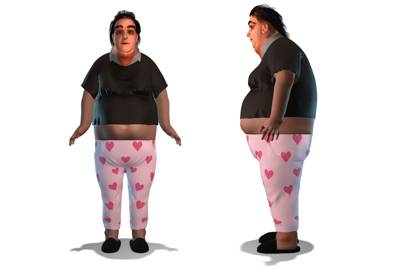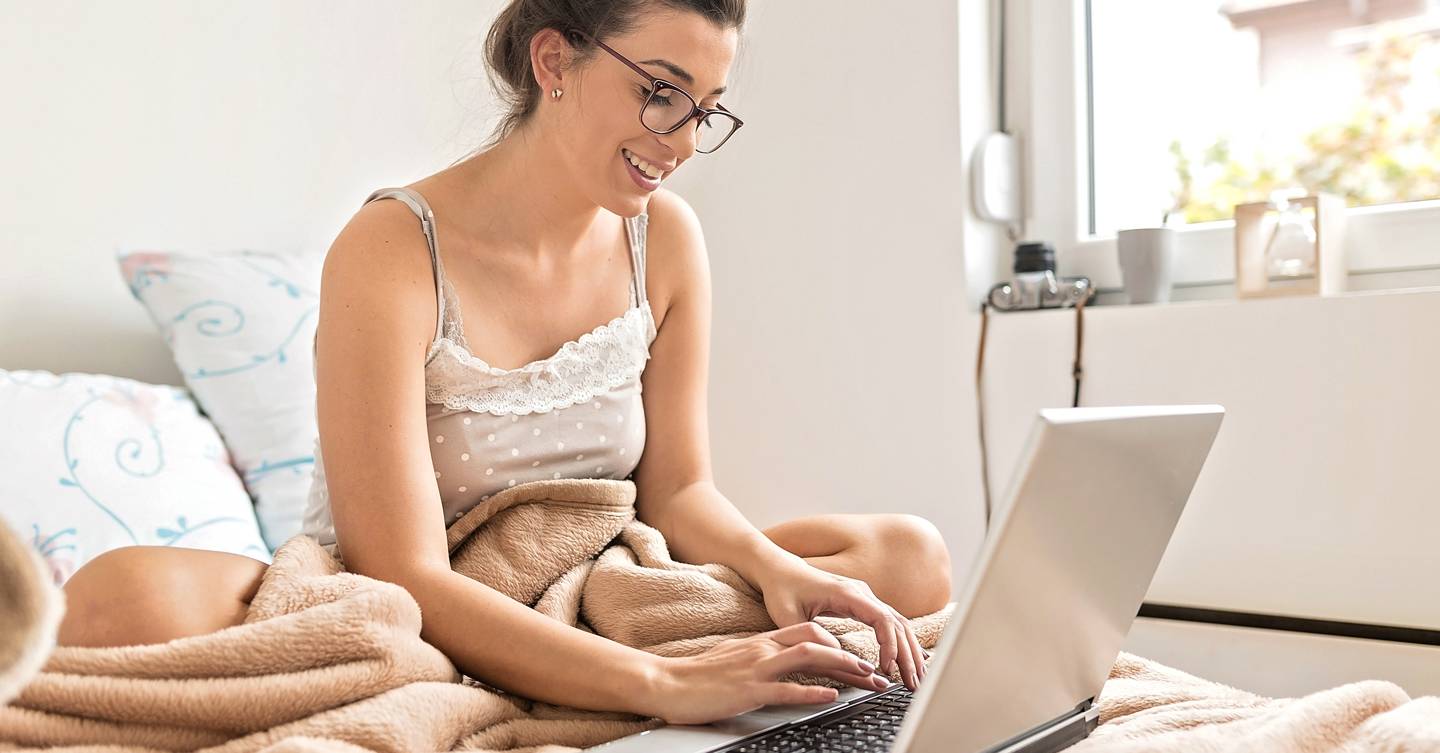Watching Netflix behind the laptop, working in our pajamas, the odd cheeky nap after lunch: Working from home has had its upsides.
But almost 12 months down the line, experts believe we might be working from home until spring 2021 at the very earliest, and sometimes it’s hard to know whether that good or bad news.
After all, we’ve established our quirky at-home routines now. We’ve bought new desks, adapted to co-working as a couple and adjusted our living spaces to ‘the new normal’. We may have even found ourselves saving money or striking a better work-life balance than we had in the office.
Like all big changes, it has crossed our minds what impact remote working could be having in the long-term. And even though it’s currently out of our control, it makes us wonder whether we’d choose flexible working in the future, especially when you hear the bleak outcomes experts predict for our posture, stress levels and sleep – not to mention skin, hair and weight.
In a 20-year forecast (which is sure to keep us up at night) a team of clinical psychologists and fitness experts has come together at DirectlyApply to predict exactly what the future of remote working looks like – and it looks a lot like ‘Susan’…

Directly Apply
With thinning hair and a muffin top, she’s a visual representation of what 20 years’ worth of WFH could do to our physical and mental wellbeing and, sadly for Susan, it’s not a good look.
By now well-accustomed to her remote worker life, Susan lives in a pair of love heart pajama bottoms (we feel personally victimised) with a Zoom-friendly collared shirt but after years of being hunched over her laptop, she’s living with terrible posture and what the experts are calling ‘Tech Neck’. Screen time and a lack of Vitamin D have ravaged her skin and left her with heavy eye bags. She’s also considerably overweight. Poor Susan.
So what does this tell us about the impact of home working on the nation’s mental and physical health in the last 12 months.
1. We miss the social side of office work
The watercooler chat just isn’t the same over Zoom and around a quarter of Brits working from home say they are struggling with the loneliness and isolation from colleagues, right now*.
In Susan’s case, going without human contact for long periods of time has increased stress levels, which could increase our blood pressure over time. In the long-run, if we don’t make the effort to increase our face-to-face social contact as remote workers, Dr Rachel M Allan says we could be missing out on the morale boosts and productivity benefits.
2. We’re not getting outdoors enough
From the commute to after-work drinks or lunch breaks outdoors, there’s no doubt that we spent more time outdoors during the pre-pandemic working days.
It’s this lack of Vitamin D and B12 that psychologists see having an impact on our skin as well as our hair. While staying indoors is what we’re being told to do right now, a working day that includes more sunlight and breaks could help improve the WFH situation in the near future.
3. Our at-home office setting is lacking
Bad posture, too much screentime and long periods of typing aren’t exclusive to remote working. Remember when experts depicted the future of office workers as a life-sized model? Yeah, office worker ‘Emma’ doesn’t look worlds away from our Susan.
It’s the occasional WFH habits we could slip into on lazy afternoons, like working from bed or the sofa, that the creators of Susan link to a hyperextended neck, rounded shoulders and a hunchback. If we can achieve an optimal working from home setup, the risks don’t seem any worse than your old desk job but PT Joe Mitten recommends yoga as the perfect antidote to long periods of sitting down.
4. It’s harder to sleep
It was recently revealed that three out of four of us had not been sleeping as well since we started working from home, with 23% being unable to switch off and 19% blaming a lack of routine**.
In the example of Susan, long periods of screentime during the working day have left her with dry, inflamed and bloodshot eyes that affect her vision, while heavy dark circles are a result of switching between screens.
To help us switch off at night, Clinical Psychologist Kate Brierton recommends having a ‘delineated home-working space’ that helps set boundaries between work-time and me-time.
5. We’re gaining weight
It’s hard to blame working from home for the belief that over half of the nation gained weight during the original lockdown***. Instead, the majority of us attribute the weight gain to snacking, drinking more alcohol and getting less exercise.
However, it might be easier for us to go longer periods without stretching or moving around during a working day spent within our four walls and when it comes to our vision of 20 years of home-working, snacking more and exercising less could contribute to weight gain on the stomach, thighs, bum and ankles, according to the DirectlyApply experts.
SOURCES
*Working from home taking its toll on the mental health & relationships of the nation
**7 Expert Tips to Turn Your Lockdown Sleep Habits Around
***The UK Lockdown Diet Report: Brits Struggling As They Pile on the Pounds, Reveals The 1:1 Diet by Cambridge Weight Plan

